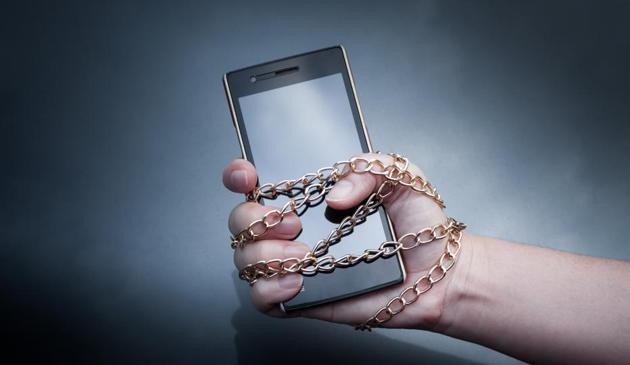How about a digital detox detour!
Around 3,20,000 people in the United Kingdom have committed themselves to a social media free month as part of the first ever ‘Scroll Free September’ campaign.
Around 3,20,000 people in the United Kingdom have committed themselves to a social media free month as part of the first ever ‘Scroll Free September’ campaign.

From smartphones to satellite navigation, our lives are full of screens. We wake up to them, come home to them and carry them around all day.
Doctor’s Take
There was study six months back which revealed that our youngest generation are the worst hit due to excessive use of social media and are emotionally weakest among the lot. As they have no real relations in life hence the increased suicide cases due to loneliness. Imagine we are living in time where we prefer wishing are person on social networking sites instead of giving a call.
Even worse, instead of visiting a sick friend or relative, we text him/her and wait for them to switch on their phones to get our wishes. The study also stated that a large number of high-profile people around the globe have shifted to basic phones as they were done with constant ping and gave up their best technology phones to live a real live. As a psychologist, I feel it is just the beginning of people realising the significance of digital detox. -Psychologist Dr Rajesh Pandey
While the experts have been warning that such constant exposure could be damaging our health, it is time we understand how damaging the addiction is.
To avoid becoming a slave to our smartphone, we do need a level of self-discipline. Occasionally, we also need a complete break.
“ Social networking left me with no time for studies. I couldn’t focus because of my Facebook addiction. When I felt I couldn’t take it anymore I just deleted my account. It has been months now and I feel that it was a good decision. I suggest all my friends to try it.” - Aditi Ranjan, studen
But what does it mean to disconnect in this digitally-dependent world? Well, yes a way in which people are exploring this idea is through a fast catching fad called a “digital detoxification.”
But how easy is it to start and, more importantly, stick to a much-needed digital detox?
We spoke to a few people in around the city to find out more about the trend.
Explaining the need for digi-detox, psychologist Dr Rajesh Pandey says, “Technology is incredibly useful and educational and it certainly allows us much creativity, connectivity and enjoyment but it cannot happen always. We all need me time off screens and phones. So to cut yourself off from all such inclinations many around the globe are on a digital detox. And as always, celebs are the torch-bearers of this development too.”
“We all know that detoxification means cleaning up. So with digital detox you not only clean your mind, your eyes but also your thought process. It is the need of the hour and is definitely every effective if done in a right way,” he says while explaining the process.
“The process usually involves taking yourself to a remote place maybe to an undisclosed location and doing something completely out of your comfort zone or maybe simply getting involved in something productive or that what you have not done for long and it was amongst your hobbies like painting, sports or simple gardening or maybe spending real time with family and friends.”
“The only thing one needs to keep in mind is before you go on a disconnecting spree; plan it in a way that it’s more constructive in the long run.”
Nobody cares if you are on or off social networking but our body and brain does care. Staying off Internet for some time did me no harm. In fact it made me feel better and carefree. Also I was able to spend quality time with my family, especially my parents.
Ishaan Kewaan, student
So, why is it important for us to do this?
There must be many who rely on technology for their livelihood or maybe their regular work involves being online most of the time. For such persons, it can be hard to go for digital detox.
Dr Pandey says, “First thing we should always remember that there was a time when there was no Internet. When we could manage then, we sure can manage now too. I’ll suggest beginning with waking up and sleeping patterns.
Avoid using your smartphone for at least two hours in the morning. It should not be the first thing you look at when you wake up. Our brains are most productive in the morning and very tired at night only we start keeping it off phone for this much time we will start detoxifying our brains to great extent.”






